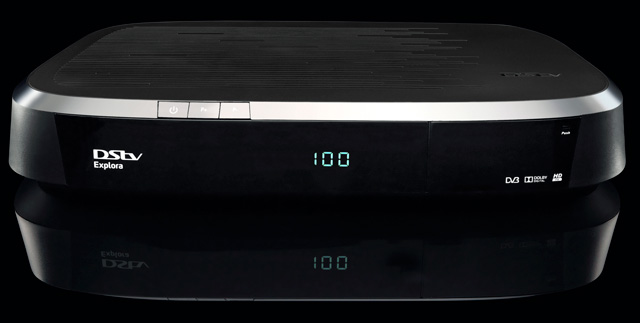 For the longest time, little much has really happened in South Africa’s broadcasting sector. But big changes are now looming.
For the longest time, little much has really happened in South Africa’s broadcasting sector. But big changes are now looming.
Barely a week seems to go by now without significant new developments in broadcasting. In recent weeks alone, there’s been news of plans to launch South Africa’s first comprehensive trial of digital radio; e.tv sister company Platco Digital has revealed plans to launch a free-to-air satellite service called OpenView HD; Kagiso Media and others have revealed their desire to launch pay-television services to challenge MultiChoice’s incumbency; and MultiChoice itself isn’t standing still, taking a big bet that consumers want video-on-demand services with the launch this week of a new personal video recorder (PVR) decoder.
Let’s take these developments in turn. Digital radio, as I wrote in this column two weeks ago, looks set to foster a more robust and competitive industry as new radio licences are issued in the next few years to challenge those already on the FM dial. The only thing holding it up is that government is taking agonisingly long to migrate analogue television broadcasters out of the spectrum that will be used for digital radio.
Then there was the news that Platco Digital, a sister company to terrestrial broadcaster e.tv — and owned, ultimately, by the listed Hosken Consolidated Investments — plans to launch a free-to-air satellite service this October. OpenView HD will offer some 15 channels in a mix of standard- and high-definition formats. Details remain sketchy, but it appears that all consumers will need to do is purchase and install a satellite dish and set-top box, which will set them back about R2 000.
It’s not only in free-to-air television that competition is growing. In pay TV, where MultiChoice still dominates with DStv, prospective rivals are lining up. This is in spite of the financial troubles faced by On Digital Media’s TopTV. The problems at TopTV, which was placed into “business rescue” in 2012 and bailed out in April this year by Chinese company StarTimes, were probably in large part due to poor execution rather than a lack of market opportunity.
Unlike TopTV, some of the prospective bidders — the biggest of which is Kagiso Media, which owns East Coast Radio and Jacaranda FM — are keen for access to spectrum that will allow them to offer digital terrestrial services. There’s very little activity in terrestrial pay television — the only player in that space is M-Net, where the number of terrestrial subscribers has dwindled — so opening the market could create interesting new competitive dynamics.
Other than Kagiso Media, the Independent Communications Authority of South Africa has received a range of bids from prospective broadcasters. There’s Siyaya, backed by the Bakgatla Ba Kgafela tribe in North West, which wants to offer a football-focused service. Talk show host Dali Tambo is also a shareholder. Then there’s CloseTV, which is promising content tailored for South Africa’s gay community. And Mindset Media Enterprises, the commercial arm of the not-for-profit Mindset Network, wants to provide low-cost education channels for use in South Africa’s schools and elsewhere. Mindset is the organisation behind the excellent Mindset Learn satellite channel that is aimed at supplementing teaching in schools.

Of course, the giant in South Africa’s broadcasting space, MultiChoice, is not standing still either. This week, the Naspers-owned broadcaster unveiled a new PVR aimed at the top end of the market. Taking its cue from Internet-based on-demand services that are fast gaining traction in developed markets, the company’s new DStv Explora decoder offers a huge amount of storage space (2TB), a big chunk of which is used to mimic services like America’s Netflix. MultiChoice didn’t have the luxury of using the Internet given the poor state of South Africa’s fixed-line infrastructure, so Explora PVRs receive and store vast quantities of content via satellite instead.
Increasingly, MultiChoice is also turning its attention to the lower end of the market where, historically, it hasn’t competed. New, cheaper bouquets, coupled with a hardnosed focus on tying up sports rights — local football has been pivotal to its focus on the emerging black middle class — have helped it lift subscriber growth.
Of course, the broadcaster is going to have be careful that it doesn’t invite the attention of competition regulators, especially if some of the new entrants begin failing commercially.
The Competition Commission’s screening unit is already deliberating about whether to recommend an investigation into MultiChoice based on a complaint from On Digital Media in which the TopTV owner accuses its bigger rival of anticompetitive behaviour, which it says made it difficult for it to offer a compelling alternative to DStv.
As new players emerge, MultiChoice must be careful that it doesn’t abuse its dominant market position to thwart competition. If it does so, it will invite trouble for itself down the line. It just needs to look at Telkom.
- Duncan McLeod is editor of TechCentral. Engage with him on Twitter
- This column was first published in the Sunday Times




